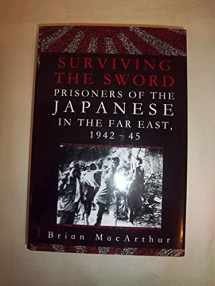
Surviving the Sword: Prisoners of the Japanese in the Far East, 1942-45
Book details
Summary
Description
During World War II, there were few fates that could befall a soldier so hellish as internment in a Japanese prisoner of war camp. To this day, many survivors–most of whom are in their eighties–still cannot talk about their experiences without unearthing terrible memories. Surviving the Sword gives voice to these tens of thousands of Allied POWs and offers us a powerful reminder of the terror and depravations of war and the resilience of the human spirit.
In this important book, Brian MacArthur draws on the diaries of American, British, Dutch, and Australian Fepows (Far Eastern prisoners of war), some of whose recollections are published here for the first time. These soldiers wrote and kept their diaries, in secret, because they were determined that to record for posterity how they were starved and beaten, marched almost to death, or transported on “hellships”; how their fellows were summarily executed by guards or felled by the thousands by tropical diseases; and how they were used as slave labor–most notoriously on the Burma-Thailand railway, as depicted in The Bridge on the River Kwai.
The diaries excerpted in this book make plain why the Fepows believed that their brutal treatment by Japanese and Korean guards was, literally, incomprehensible to those who did not live it. The prisoners whose stories appear here risked torture and execution to keep diaries and make sketches and drawings that they hid from the guards wherever they could, sometimes burying them in the graves of lost comrades. The survivors’ narratives reveal not just a litany of horrors, but are a moving testament to the nobler instincts of humanity as well, detailing how the POWs prevailed over horrible conditions, even finding or creating a precious few creature comforts and sustaining the rudiments of culture, learning, and play. Forced into solidarity by inhuman conditions, the soldiers showed incredible compassion for one another, improvising ingenious ways to care for the sick, boost morale by subtly mocking their jailers’ authority, or even turn meager rations into the occasional feast.
Countless thousands died in Japanese prison camps during World War II. Those fortunate enough to emerge from their ordeal were never the same again. Surviving the Sword at last fills a notable historical gap in our understanding, while also commemorating and memorializing the Fepows’ struggle and sacrifice.


We would LOVE it if you could help us and other readers by reviewing the book
Book review



